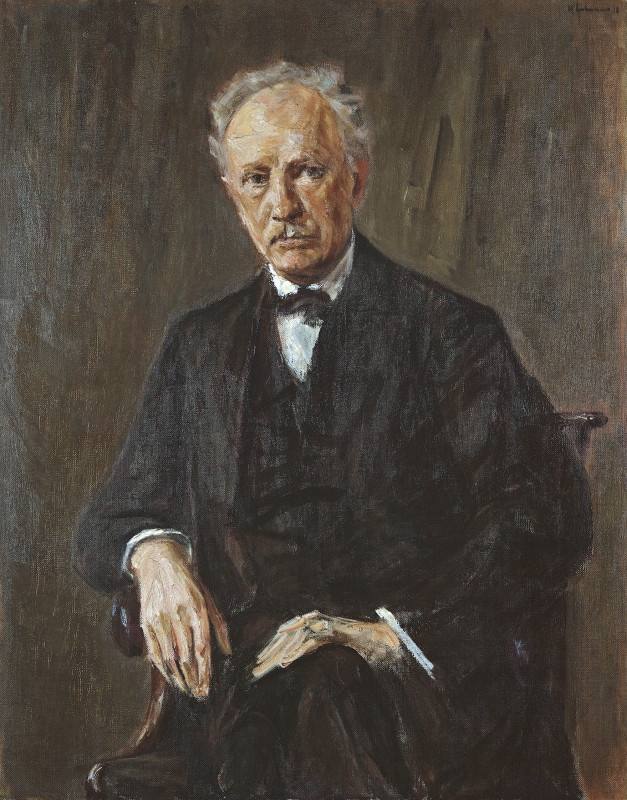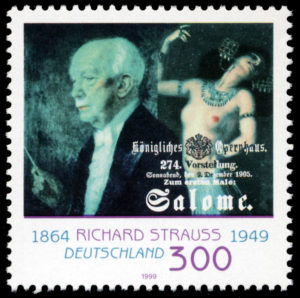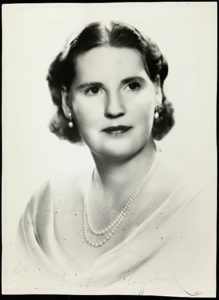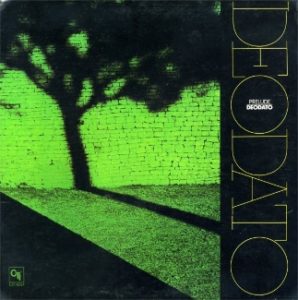Cause and Effect presents:
The Late Romanticism of Richard Strauss [1864-1949]

[1918 Portrait of Strauss by Max Liebermann]
Richard Strauss spent nearly eighty years composing music, and with great fame and success. He also toured the world as a conductor. His reputation as a composer relies almost entirely on his twelve tone poems and about as many operas, as well as his late masterpiece for soprano and orchestra, Vier letzte Lieder (Four Last Songs). His orchestration was virtuosic, and he absolutely loved writing music for the female voice. Strauss is often praised for his ability to create operatic heroines, and his operas Salome, Elektra, Der Rosenkavalier, and Die Frau Ohne Schatten (The Woman Without A Shadow) are a testament to his love for women’s voices.
[German postage stamp, 1999]
On discovering the symphonic poems of Franz Liszt:
“New ideas have to find new forms – this basic principle of Liszt’s symphonic works, in which the poetic idea was actually also the formative element, became from then on the guide for my own symphonic work … ”
[Kirsten Flagstad, who sang the posthumous premiere of Strauss’s Four Last Songs in 1950]
The following poem is the the sung text of the fourth of the Four Last Songs:
“Im Abendrot” (“At sunset”) (Text: Joseph von Eichendorff)
Wir sind durch Not und Freude
gegangen Hand in Hand;
vom Wandern ruhen wir beide
nun überm stillen Land.
Rings sich die Täler neigen,
es dunkelt schon die Luft.
Zwei Lerchen nur noch steigen
nachträumend in den Duft.
Tritt her und lass sie schwirren,
bald ist es Schlafenszeit.
Dass wir uns nicht verirren
in dieser Einsamkeit.
O weiter, stiller Friede!
So tief im Abendrot.
Wie sind wir wandermüde –
Ist dies etwa der Tod?
(Through sorrow and joy
we have gone hand in hand;
we are both at rest from our wanderings
now above the quiet land.
Around us, the valleys bow,
the air already darkens.
Only two larks soar
musingly into the haze.
Come close, and let them flutter,
soon it will be time to sleep
so that we don’t get lost
in this solitude.
O vast, tranquil peace,
so deep in the afterglow!
How weary we are of wandering –
Is this perhaps death?)
[Cover art from Deodato’s 1973 album Prelude, which features a jazz rendition of Strauss’s Also Sprach Zarathustra, also featured in the 1980 film Being There.]
In March 1933, when Strauss was 68, Adolf Hitler and the Nazi Party rose to power. Strauss never joined the Nazi Party, and studiously avoided Nazi forms of greeting. For reasons of expediency, however, he was initially drawn into cooperating with the early Nazi regime in the hope that Hitler—an ardent Wagnerian and music lover who had admired Strauss’s work since viewing Salome in 1907—would promote German art and culture. Strauss’s need to protect his Jewish daughter-in-law and Jewish grandchildren also motivated his behavior, in addition to his determination to preserve and conduct the music of banned composers such as Gustav Mahler and Claude Debussy. Toward the end of the war, a few days after finishing his study for solo strings Metamorphosen in March 1945, Strauss wrote in his diary:
“The most terrible period of human history is at an end, the twelve year reign of bestiality, ignorance and anti-culture under the greatest criminals, during which Germany’s 2,000 years of cultural evolution met its doom.”
Show Archive
Play show / Add show to playlistPlaylist:
-

-
Karl Böhm & Berlin Philharmonic, “Also Sprach Zarathustra”
from Strauss Tone Poems
Deutsche Grammophon - 1988
-

Jessye Norman, Gewandhausorchester & Kurt Masur, “Vier letzte Lieder: IV. Im Abendrot”
from Strauss, R.: Four Last Songs; 6 Orchestral Songs
Decca Music Group Ltd. - 1983
-

Otto Klemperer & Philharmonia Orchestra, “Salome Op. 54: Dance of the Seven Veils”
from Wagner: Operatic Highlights; R. Strauss: Tone Poems
Warner Classics - 2013
-

Cheryl Studer, “Salome, Op. 54: Scene Four (excerpt)”
Deutsche Grammophon (DG) - 1991
-

Ray Conniff, “Bah Bah Conniff Sprach (Zarathustra) [Single Version]”
from You Are the Sunshine of My Life
Columbia - 1973
-
Michael Gielen & CIncinnati Symphony Orchestra, “Metamorphosen for 23 String Instruments”
from Death & Transfiguration/Metamorphosen
Moss Music Group - 1986
DJbob Cause and Effect November 12th, 2022
Posted In: Blogging, Music, Music Shows, Volunteering, Website



